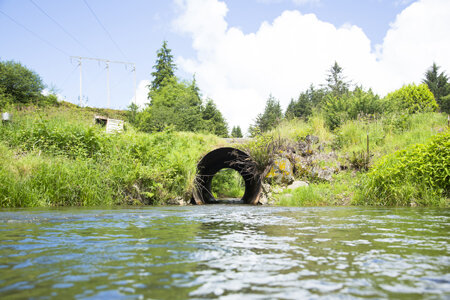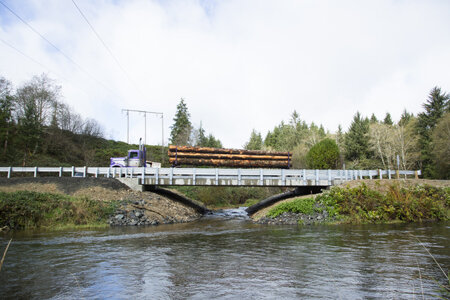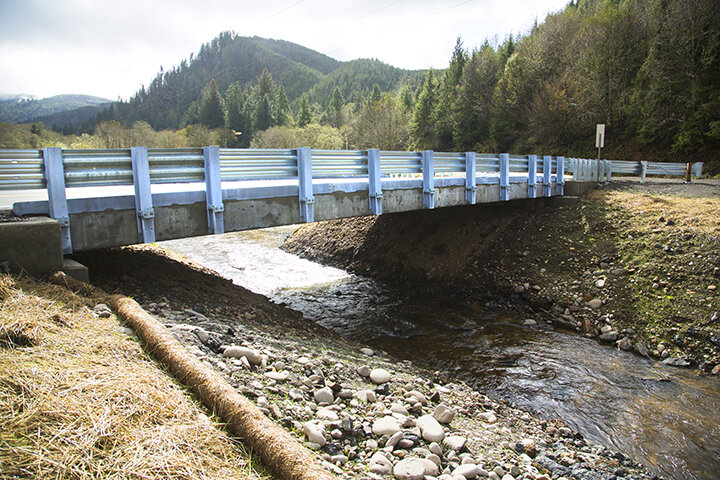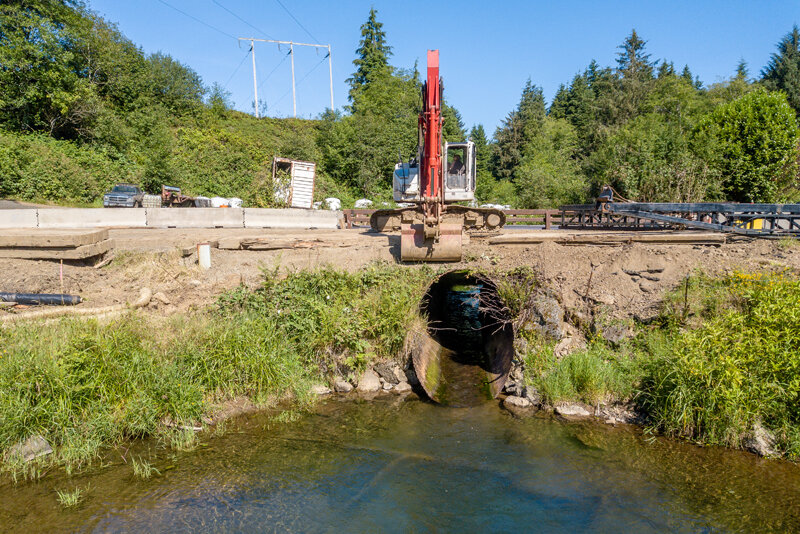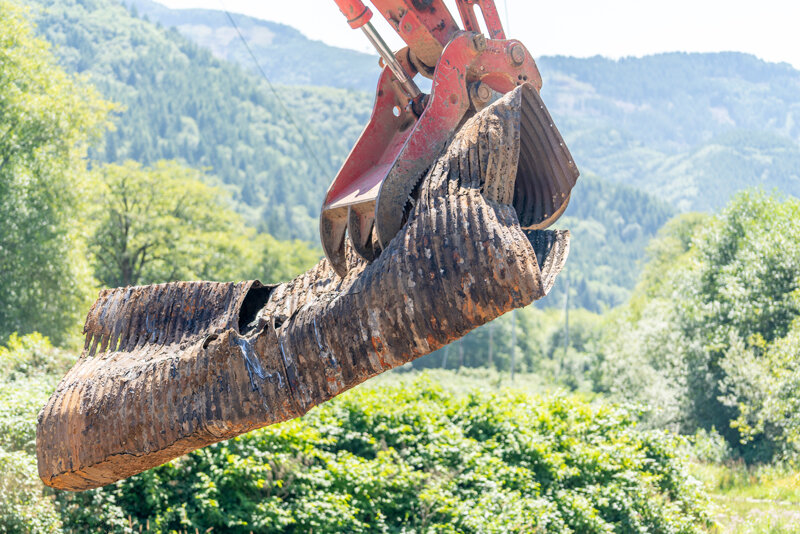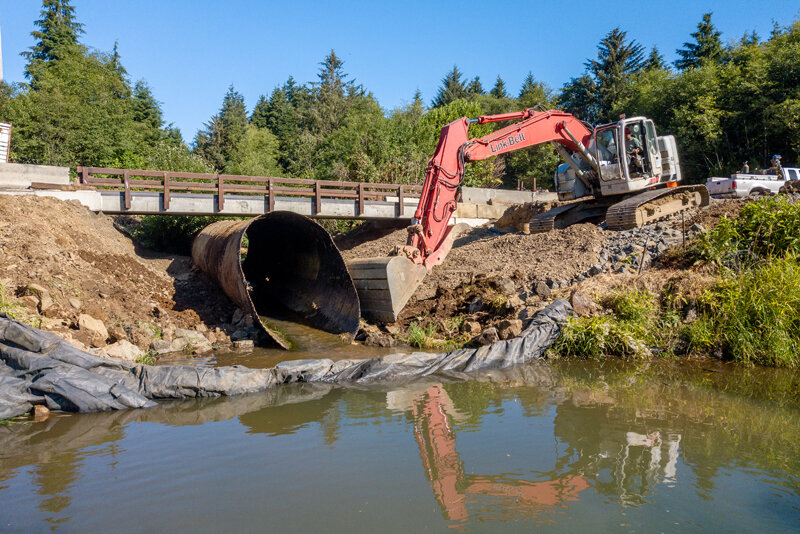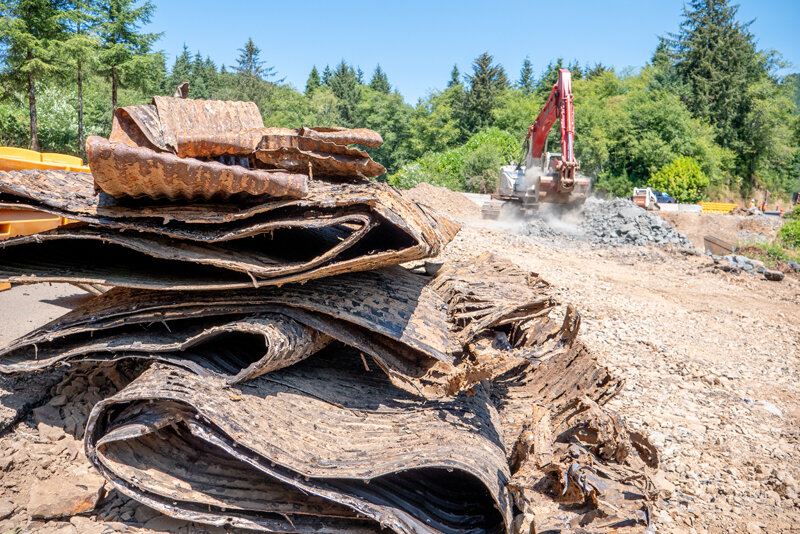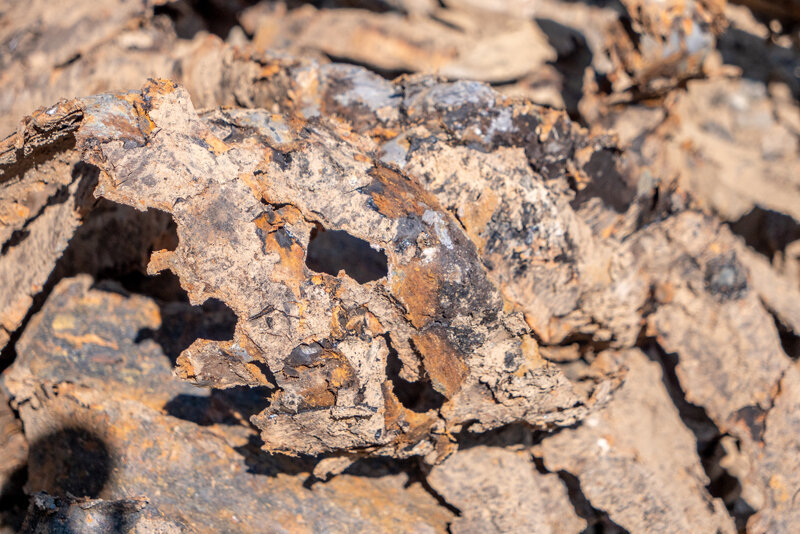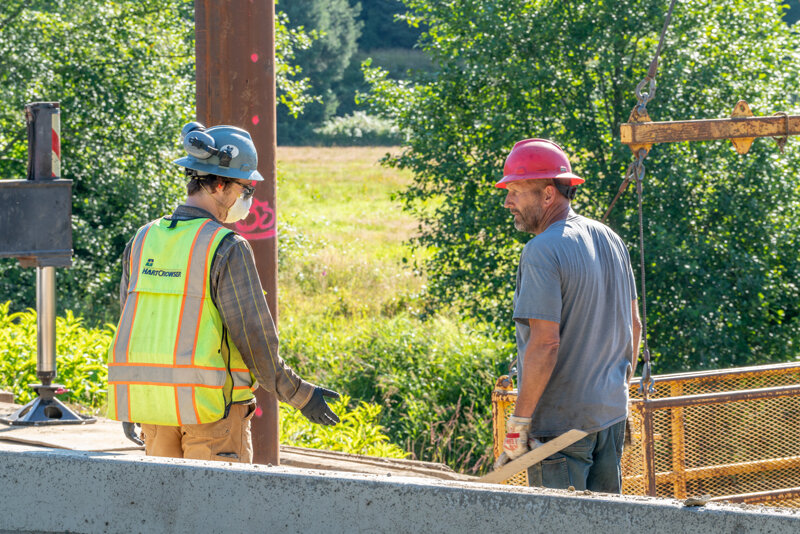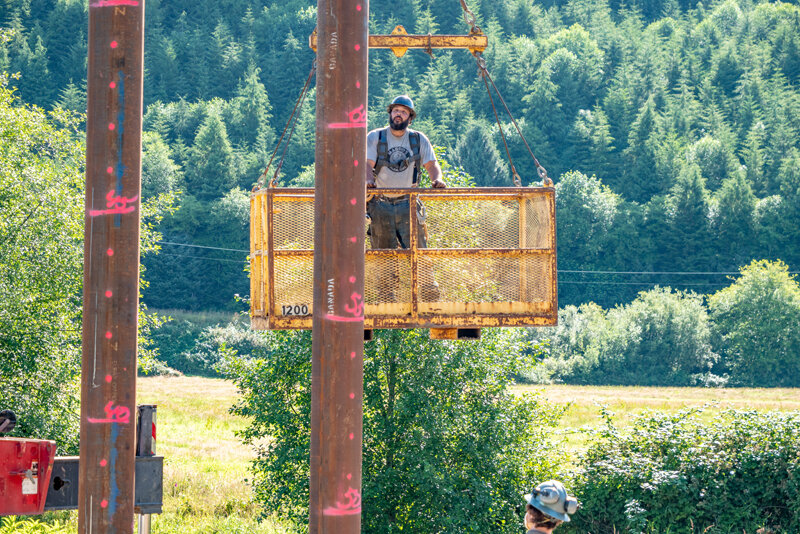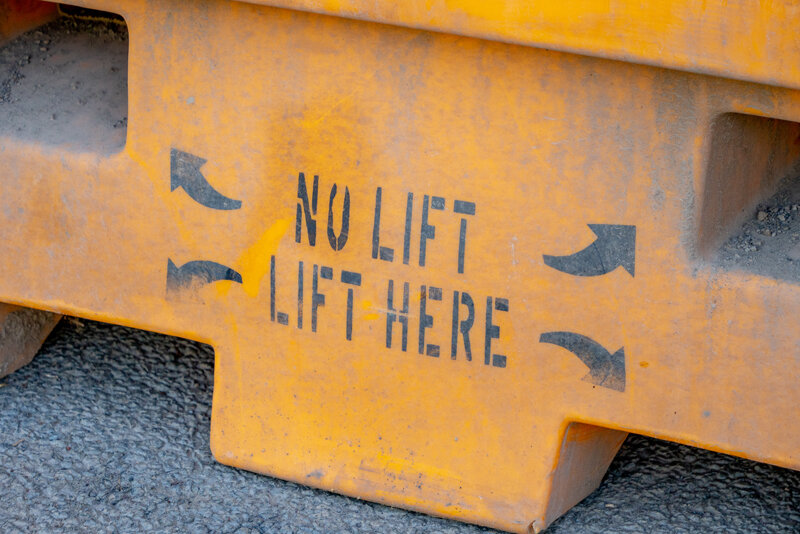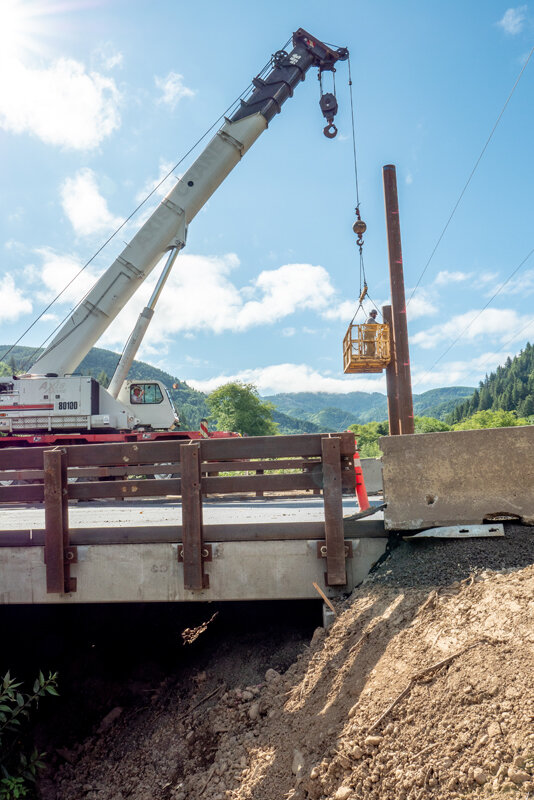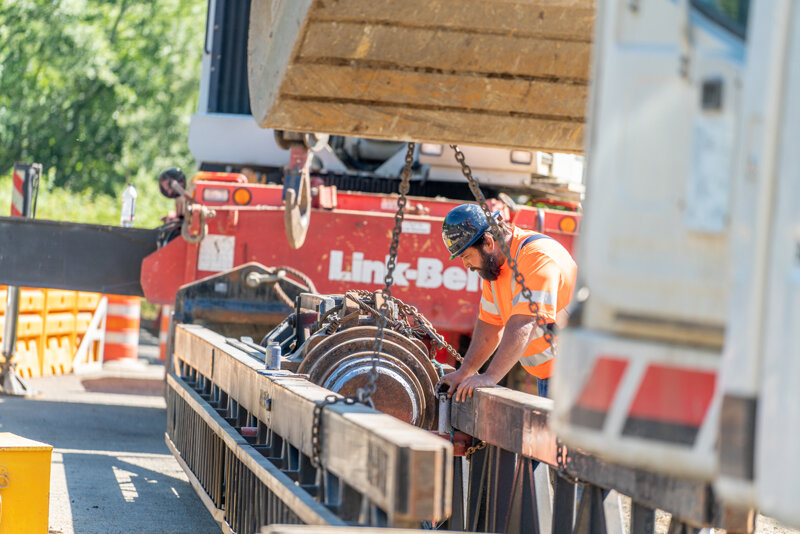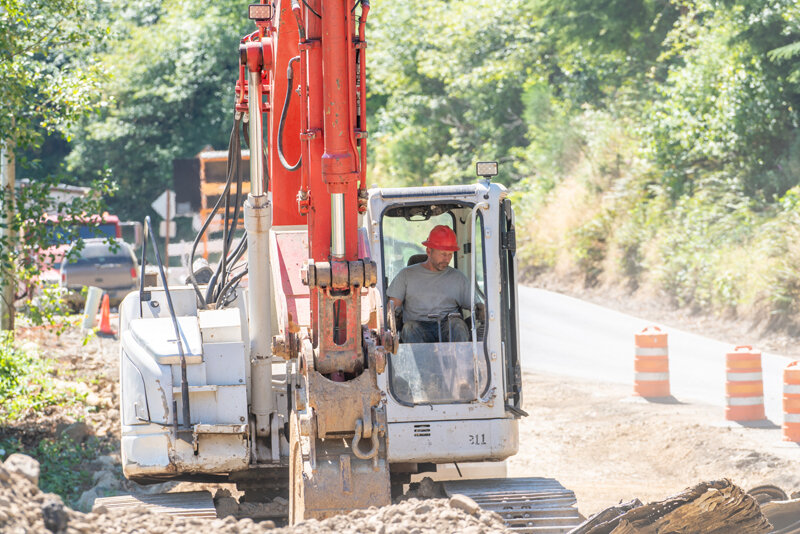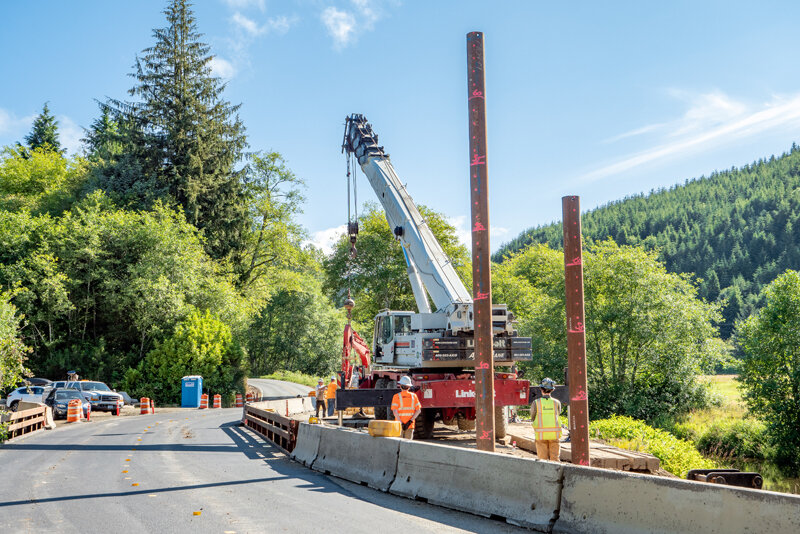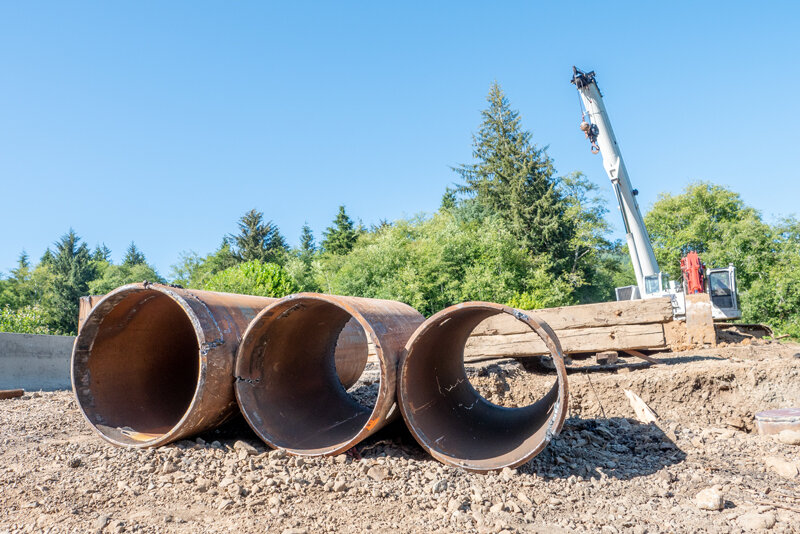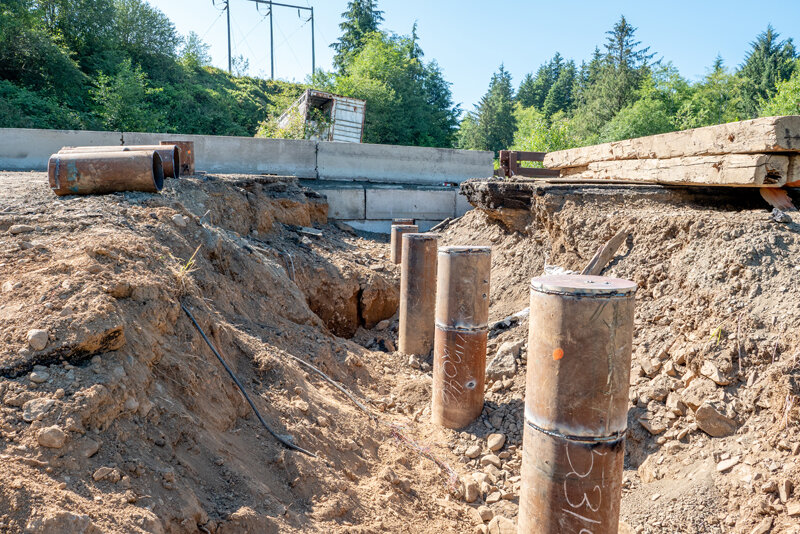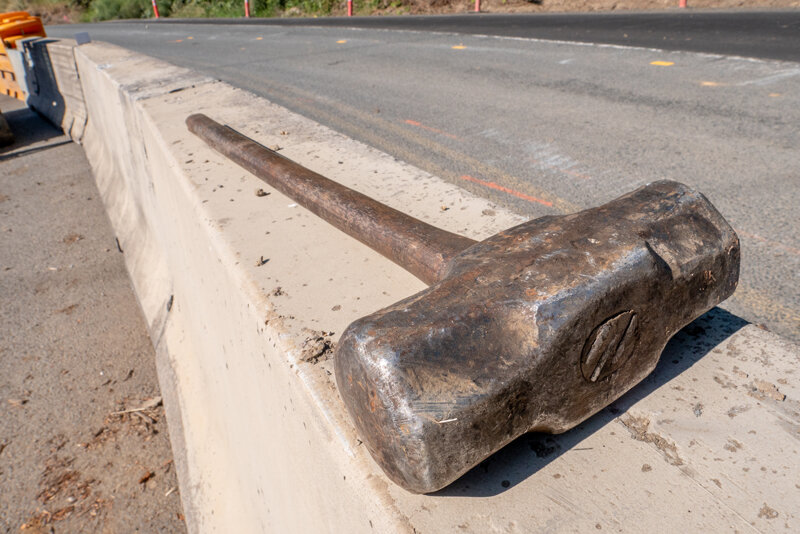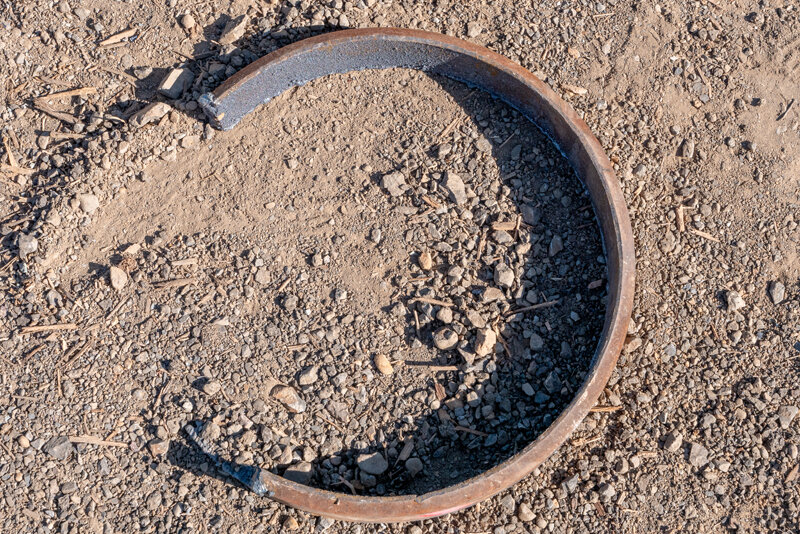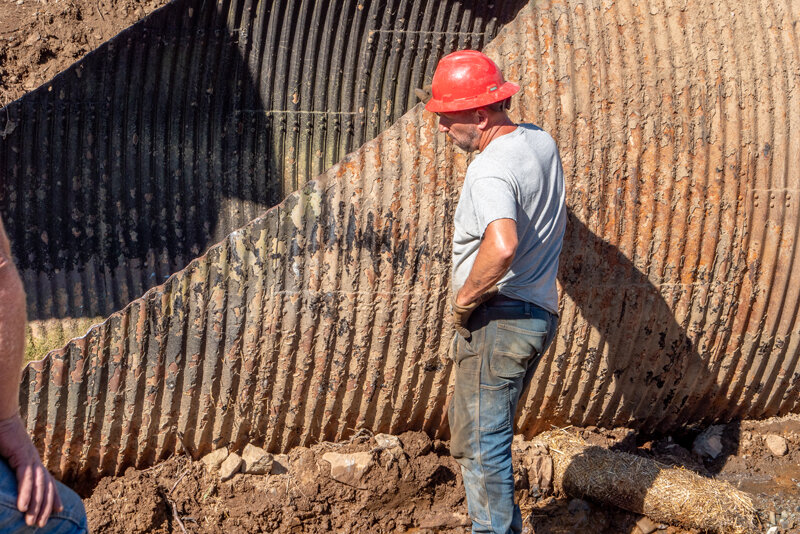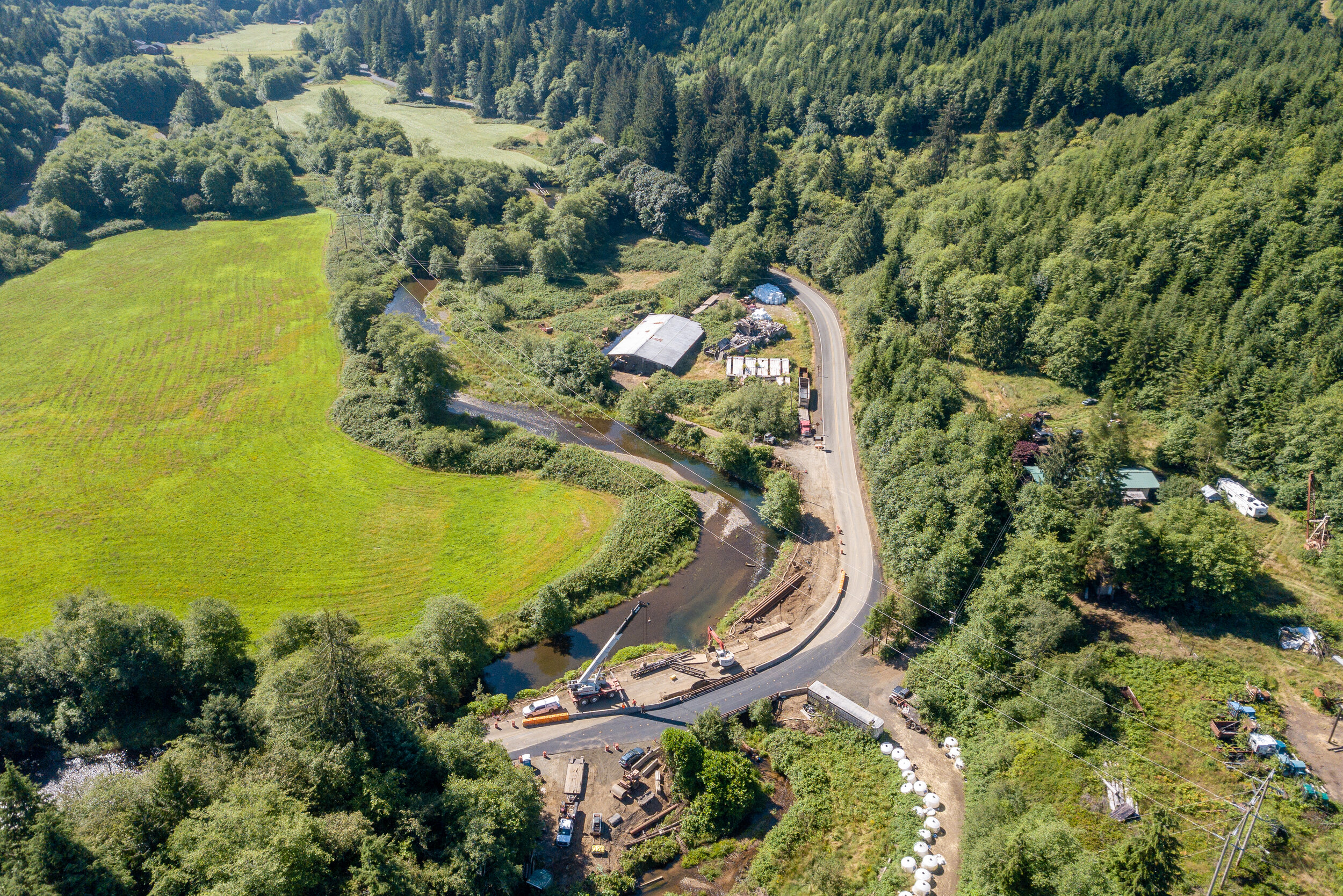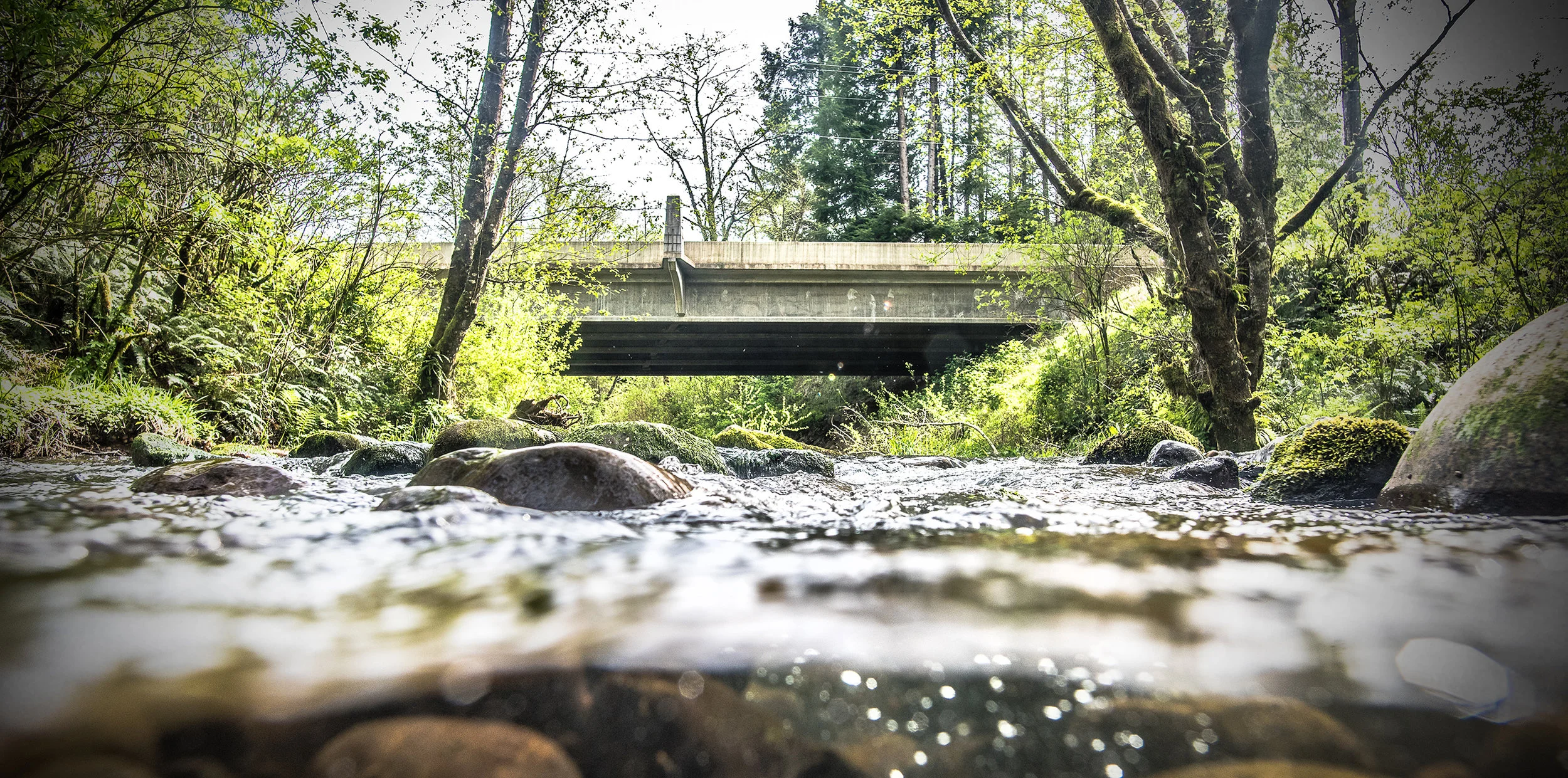Peterson Creek highlights
The completed bridge over Peterson Creek
“Within weeks of project completion, TEP staff noted numerous spawning salmon upstream of the new bridge structure. We are ecstatic about these immediate results and our prosperous collaboration with the Salmon SuperHwy partnership that
made it possible!”
Project oVerview
Started: 7/20 Completed: 11/20
Miami-Foley Road crosses Peterson Creek just upstream from its confluence with the mainstem Miami River. The culvert crossing was substantially undersized, in poor condition, and at risk of failing, and was a passage impediment to at least 6.2 miles of upstream habitat. This project replaced the failing culvert with a 48’ clear span bridge, and restored access to important habitat for ESA listed threatened coho, Chinook, chum, steelhead, cutthroat trout, and lamprey along with other aquatic species.
The undersized, deteriorated 7’ culvert was replaced with a 48’ clear span bridge that can accomodate 100 year floods without intercepting the structure. The streambed was reconstructed using streambed simulation methodology. This technique emulates the stream’s natural bedform, including gravels and boulders, to create optimal fish habitat and passage.
Highly successful Partnership
The successful implementation of this substantial and costly project was only possible due to collaboration of Salmon SuperHwy partners. Federal, state and county agencies, in addition to non-profits Tillamook Estuaries Partnership and Trout Unlimited combined technical skills and funding to achieve this win-win for fish, water quality, transportation, and the economy.
The US Forest Service provided survey assistance. The US Fish and Wildlife Service provided technical assistance, design review and cash contribution. Tillamook County Public Works (TCPW) provided design review, construction management as well as cash contribution. Tillamook Estuaries Partnership provided project management, state & local permitting and contracting. The Oregon Department of Fish & Wildlife provided technical assistance in project implementation. Trout Unlimited provided administrative support. The National Oceanic and Atmospheric Administration provided significant funding and NEPA analysis. Finally, the Oregon Watershed Enhancement Board provided significant cash contribution.
Benefits
• Restores access to 6.2 miles of anadromous fish habitat
• Improves sediment and large wood transport
• Provides safe, climate-resilient access for residents and industry using Miami Foley Road, a Priority 1 Lifeline Route for Tillamook County.
Species + Infrastructure
The Miami watershed drains into Tillamook Bay and supports ESA listed coho, as well as chinook, chum, steelhead, cutthroat & lampreys. The southern edge of chum range, the Miami is critical to chum population survival. This section of the Miami system is a major chinook producer as well. Peterson Creek is a low-gradient stream with a variety of in-stream habitat types and a high percentage of pools. Surveys indicate that Peterson Creek sub-basin provides excellent spawning opportunities for coho and that it has a high level of channel sinuosity, high wood complexities (including several log structures), good pool formation, and a high pool/riffle ratio per stream mile. The surveys also showed abundant reserves of fine sandstone gravels were present.
Miami-Foley Road, carrying an average 1700 vehicles per day, is one of Tillamook County’s “Priority 1 Lifeline” designated roadways, representing a critical transportation feature, an emergency alternate route to US101, and a designated tsunami escape route.
Partners
Tillamook Estuaries Partnership, Tillamook County Public Works, US Fish and Wildlife Service, US Forest Service, National Oceanic and Atmospheric Association, Oregon Watershed Enhancement Board, Trout Unlimited, OR Dept. of Fish and Wildlife
cost + funding
TOTAL COST: $1,109,787
USFWS: $140K/$6K in kind
ODFW: $1K in kind
OWEB: $348.5K
NOAA: $448.5K
TCPW: $30.5K/$118K in kind
TEP: $16K in kind
TU: $1K in kind
